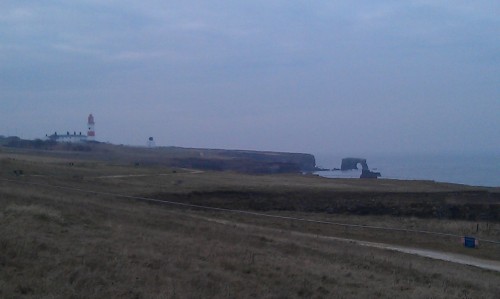Drafted
in at the last minute due to Claire Askew having to pull out because of food
poisoning, John and Melanie kindly offered me a slot at ‘We’re All Mad Here’ –
Trashed Organ’s Festival of Belonging Fringe inauguration at The Central in
Gateshead. Here are my thoughts.
The
venue, while in many ways similar to Trashed Organ’s usual haunt, The Bridge
Hotel, is altogether refreshing: contemporary blends well with old, assisted by
the strategic placing of bubble blowers and miniature lamps. There was a typist
– yes, an old-fashioned-doing-it-straight-onto-the-page-style one on hand,
documenting guests’ most profound thoughts on the Organ Grinders and their
sleek Trashing machine. A temporary post office, in which guests left their
contact details in exchange for their own messages, later to be sent on to
other participants at random, was an intriguing affair and brought to mind what
The Guardian might do with their Soulmates section should their editors ever
drink too much port. Ah, the port: the Trashed Laureate is a hallmark of any of
these events now, and Amina Marix Evans won it, graciously donating the wares
to Fiona and her Jazz Express, the house band and primary (trashed?) organ
amidst the whole ensemble.
Poetry
wise, this was very much a Red Squirrel dominated affair. I am, of course,
biased, but I think the three writers from RS did the press and the start of
this festival a good service. The fourth poet, Lizzie Whyman, was a delightful
surprise, mixing call-centre humour, playground brutality and reworkings of
myths and legends. Andrew McMillan was brilliant: a consummate performer, his blend
of Yorkshire wit and sharp lyricism is all held together by subtle, well-honed,
humour. Firas Kirala lent an altogether different tone to the evening with a
kind of Arabic folk music. I don’t wish to say too much about it for fear of
sounding ignorant (I have no idea what that musical instrument was, but it
captivated my ears!), but I will say that he is obviously a very skilled performer
and the soothing, reflective nature of his musicianship worked perfectly as a
calm interlude to the whole affair.
Ultimately,
there had to be a headliner and I personally thought Stevie Ronnie stole the
show. Reciting his poems without prompt or introduction, I was absolutely in
his world. While the delivery was spare, even oblique, Ronnie’s poems are utterly
convincing and rooted in love and a zest for language: whether it’s the burns
and fields of his North East, or the passion for his family and what that
means, I believed every word and can’t wait to read with him in Newcastle next
month.
Tomorrow:
Castles, Collieries and Coastlines
.jpg)

